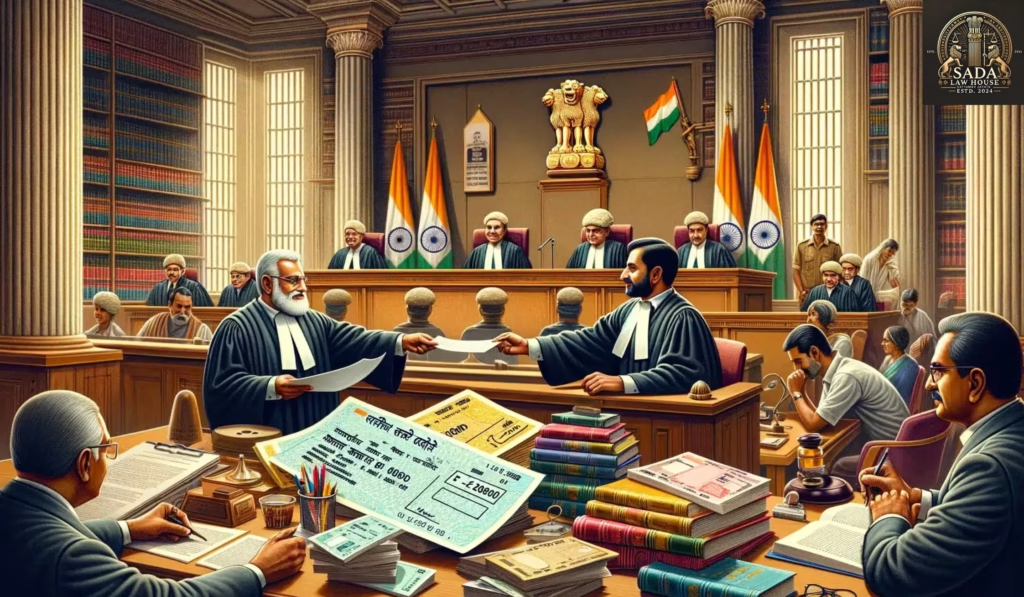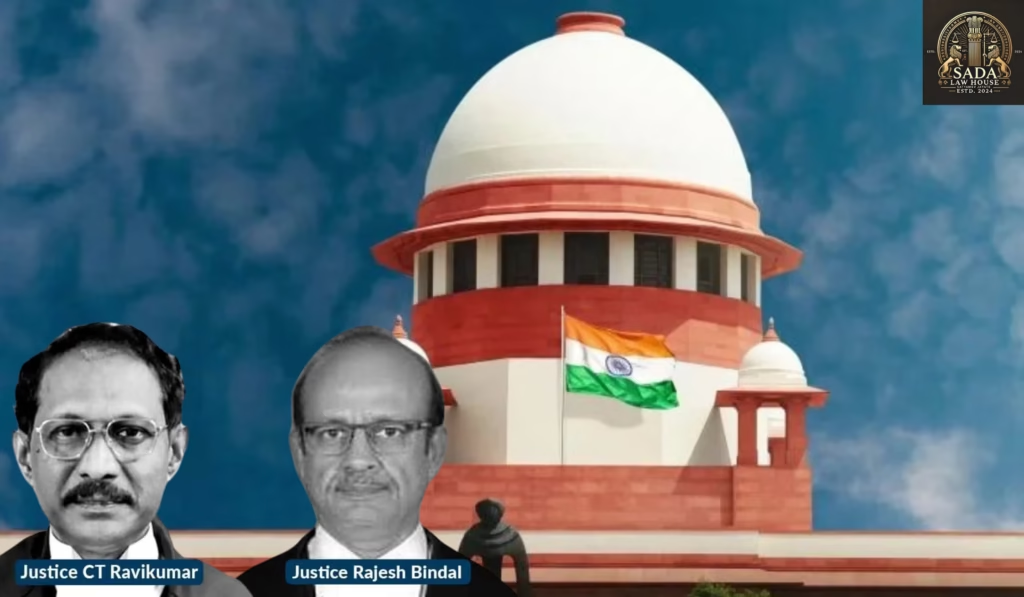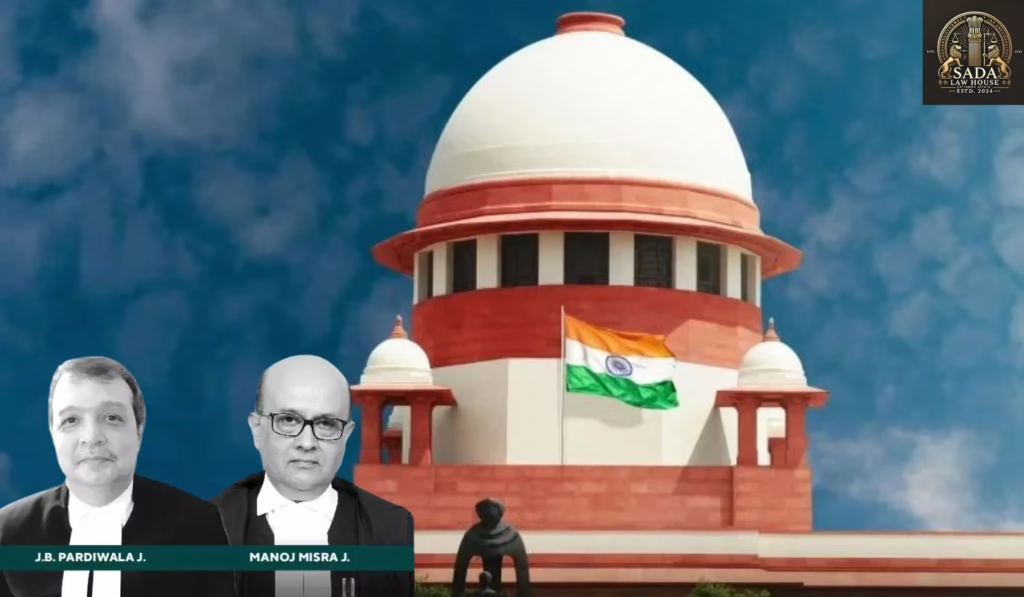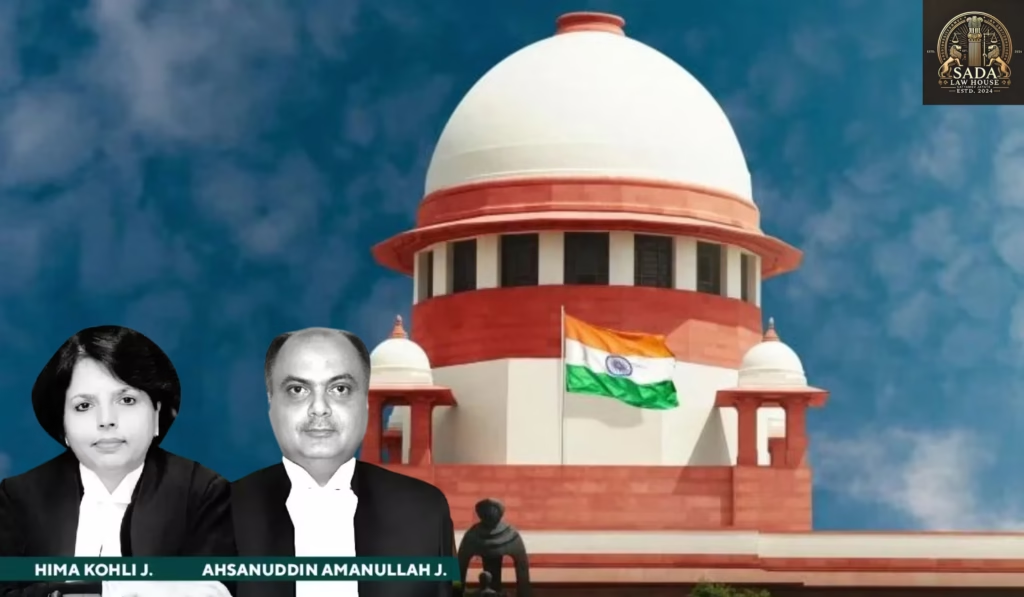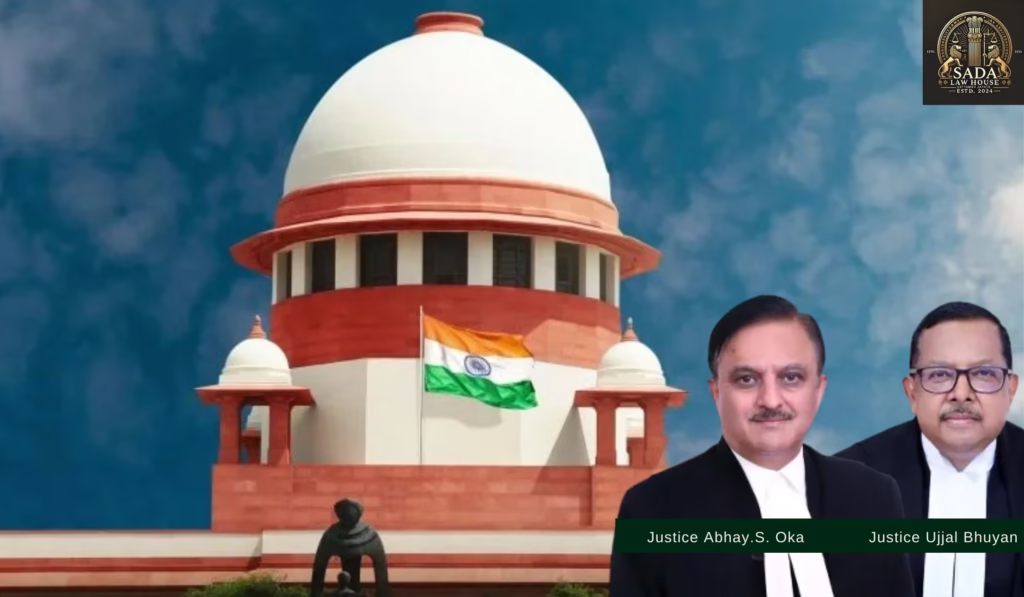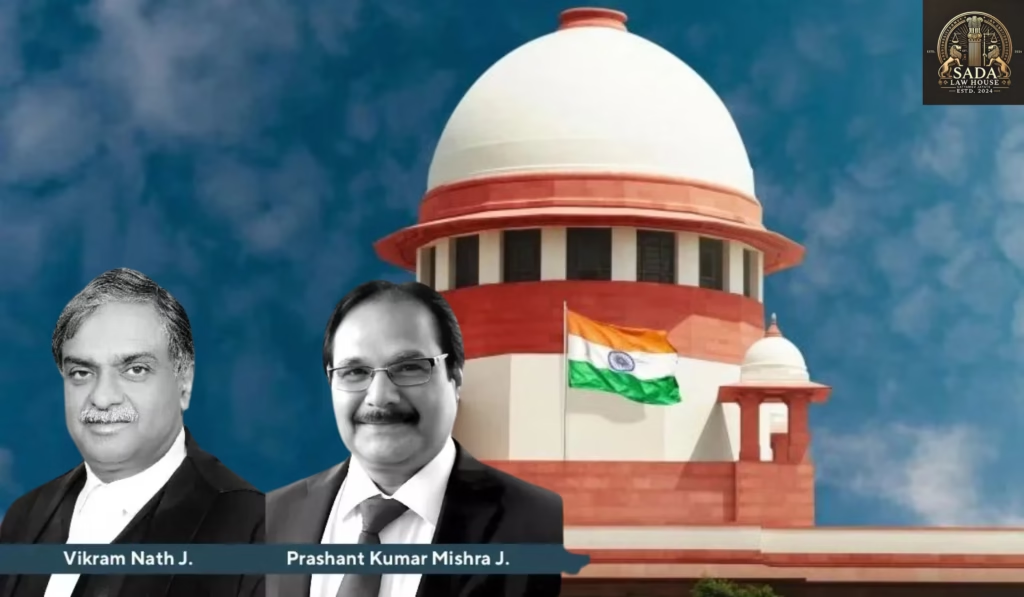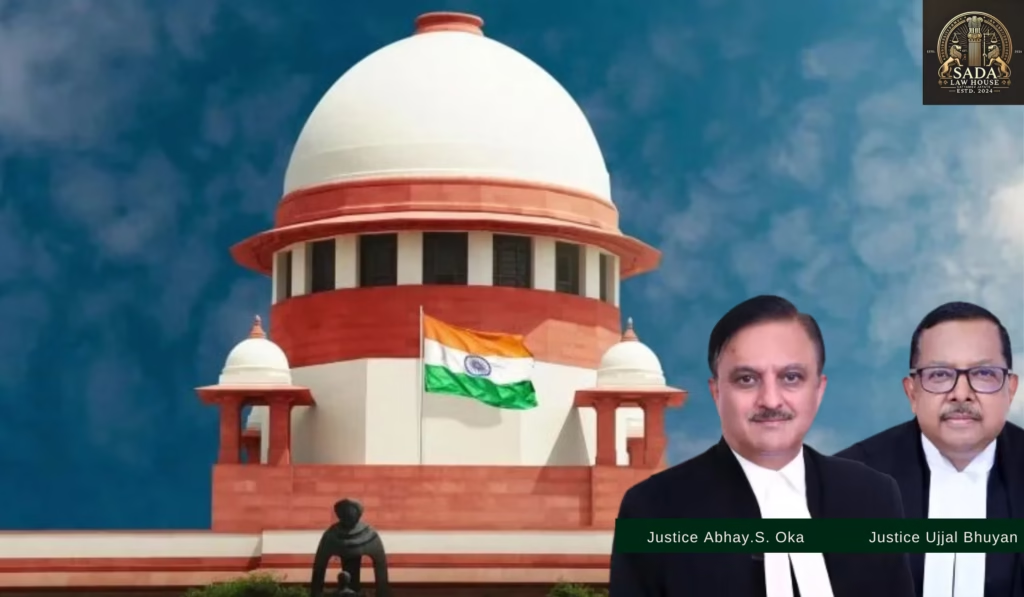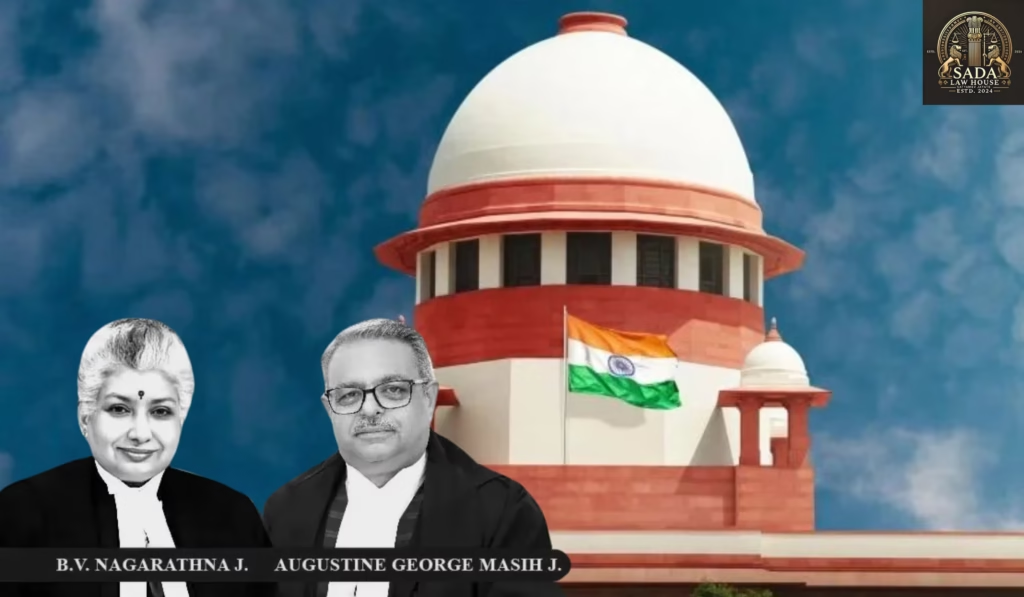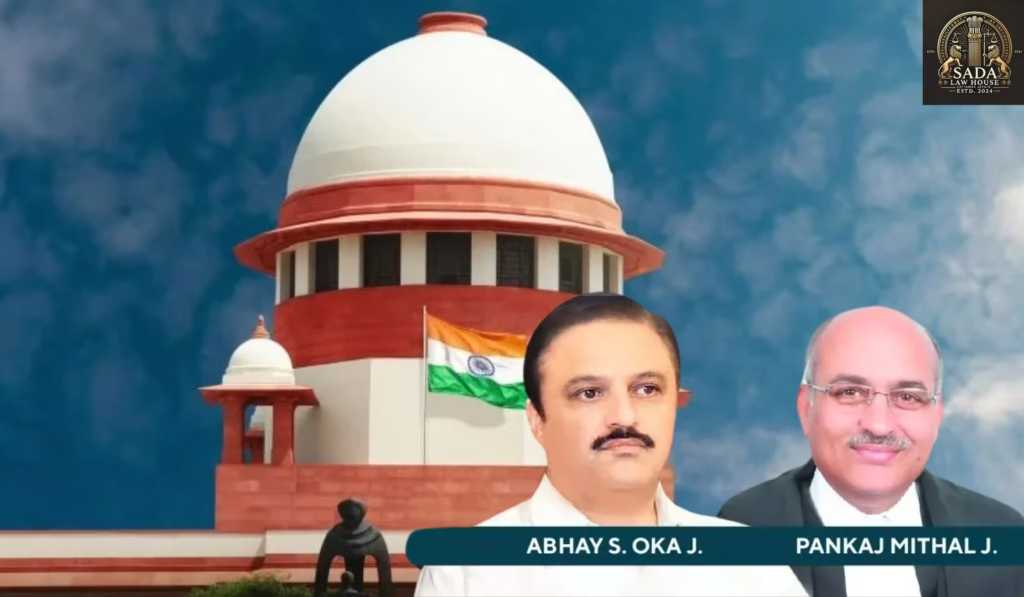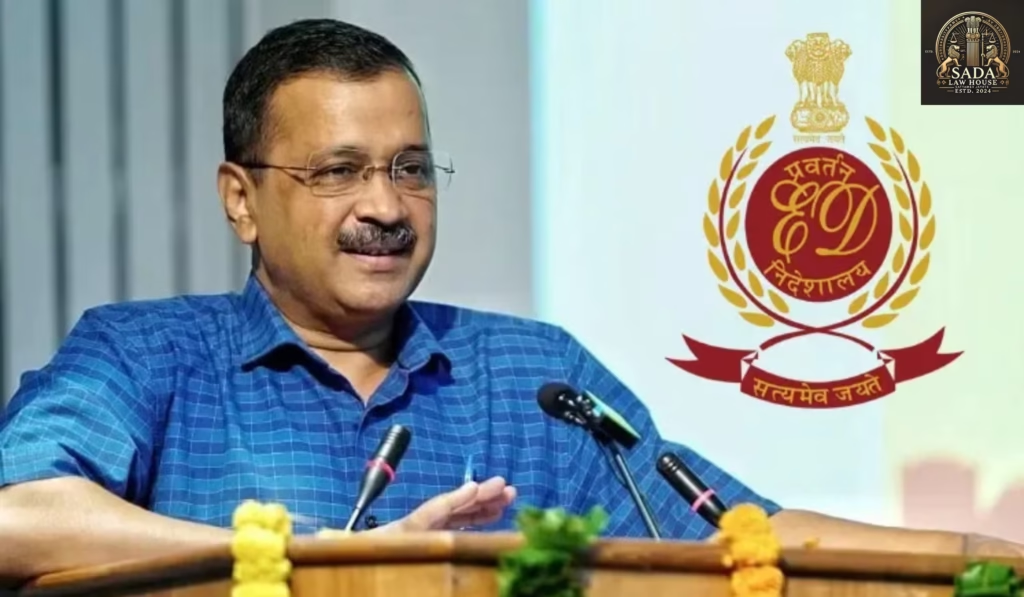Supreme Court Rules Advocates Not Liable for Deficiency of Services Under Consumer Protection Act – Key Case Analysis
Trending Today Supreme Court Rules Advocates Not Liable for Deficiency of Services Under Consumer Protection Act – Key Case Analysis Supreme Court Clarifies Appeal Timeline in Juvenile Justice Cases: Key Ruling in Child in Conflict with Law vs State of Karnataka Supreme Court Rules Compensation Cannot Replace Jail Time in Serious Crimes Under CrPC Section 357 BCI Chairman Manan Kumar Mishra Condemns Arrest of Sharmishta Panoli, Demands Immediate Release Over Social Media Controversy Supreme Court Petitioned After Alleged Police Assault on Journalists Reporting on Madhya Pradesh Sand Mafia Supreme Court Rejects Plea Against Assam’s Deportation Policy on Bangladeshi Infiltration Supreme Court Orders Medical Care for Disabled Rape Survivor Under Victim Compensation Scheme LEGAL JOB OPPORTUNITY AT OFFICE OF NUNIWAL LAW CHAMBERS Supreme Court Emphasizes Judicial Hierarchy: Contempt Case Against NCDRC Members in Ireo Grace Realtech vs Sanjay Gopinath (2024) Supreme Court Judgment on ED’s Arrest Powers Under PMLA: No Arrest After Special Court Cognizance | Tarsem Lal Case Analysis 2024 Supreme Court Rules Advocates Not Liable for Deficiency of Services Under Consumer Protection Act – Key Case Analysis REHA BHARGAV 04 June 2025 Explore the landmark Supreme Court judgment in the Bar of Indian Lawyers vs. D.K. Gandhi case, clarifying that advocates are not liable for deficiency of services under the Consumer Protection Act. Understand the implications for legal accountability, police procedures, and fundamental rights in India. Introduction On May 28, 2024, the Supreme Court of India delivered a crucial judgment in the case filed by the Bar of Indian Lawyers, led by President Jasbir Singh Makik (Note: no direct Wikipedia page, so linked to related), against D.K. Gandhi from the Police Station at the National Institute of Communicable Diseases (NICD). This case addressed important questions around police conduct, procedural fairness, and advocates’ liability under the Consumer Protection Act. Case Background: Bar of Indian Lawyers vs. D.K. Gandhi The petition was filed due to alleged procedural lapses and possible human rights violations by police officials at the NICD police station. The Bar of Indian Lawyers challenged the police action, citing concerns over arbitrary conduct, misuse of power, and lack of transparency during enforcement activities related to public health and communicable disease control. Key Legal Issues Violation of Fundamental Rights The petitioner argued that the police violated constitutional protections, specifically the right to life and personal liberty under Article 21 of the Indian Constitution. Allegations of Arbitrary and Malicious Conduct Claims were made that police officials acted arbitrarily and maliciously without following due process or legal protocols. Need for Judicial Oversight and Accountability The petition emphasized the necessity for judicial intervention to ensure transparency and accountability in police conduct. Respondent’s Defense The police defended their actions as lawful and necessary for public safety, emphasizing strict adherence to procedural norms and regulations governing communicable diseases. They denied any misuse of power or arbitrary behavior, stating that all enforcement measures were justified and aimed at maintaining law and order. Supreme Court Judgment Summary After thorough consideration, the Court acknowledged the importance of protecting fundamental rights while recognizing the police’s duty to enforce laws relating to public health. The Court ruled that advocates are not liable under the Consumer Protection Act for deficiency of services, balancing the need for effective law enforcement with constitutional safeguards. The judgment highlights the essential role of judicial oversight in maintaining this balance. Conclusion: Impact and Implications This landmark ruling reinforces the principle that police powers must be exercised lawfully and transparently, particularly in sensitive areas like public health enforcement. It clarifies that advocates cannot be held liable for professional service deficiencies under consumer protection laws. The decision underscores the complementary nature of safeguarding individual rights and maintaining public safety through due process and accountability. Leave a Reply Cancel Reply Logged in as Sada Law. Edit your profile. Log out? Required fields are marked * Message* Case Laws Supreme Court Rules Advocates Not Liable for Deficiency of Services Under Consumer Protection Act – Key Case Analysis Supreme Court Rules Advocates Not Liable for Deficiency of Services Under Consumer Protection Act – Key Case Analysis Sada Law • June 4, 2025 • Case law • No Comments Supreme Court Clarifies Appeal Timeline in Juvenile Justice Cases: Key Ruling in Child in Conflict with Law vs State of Karnataka Supreme Court Clarifies Appeal Timeline in Juvenile Justice Cases: Key Ruling in Child in Conflict with Law vs State of Karnataka Sada Law • June 4, 2025 • Case law • No Comments Supreme Court Rules Compensation Cannot Replace Jail Time in Serious Crimes Under CrPC Section 357 Supreme Court Rules Compensation Cannot Replace Jail Time in Serious Crimes Under CrPC Section 357 Sada Law • June 4, 2025 • Case law • No Comments 1 2 3 … 5 Next »

